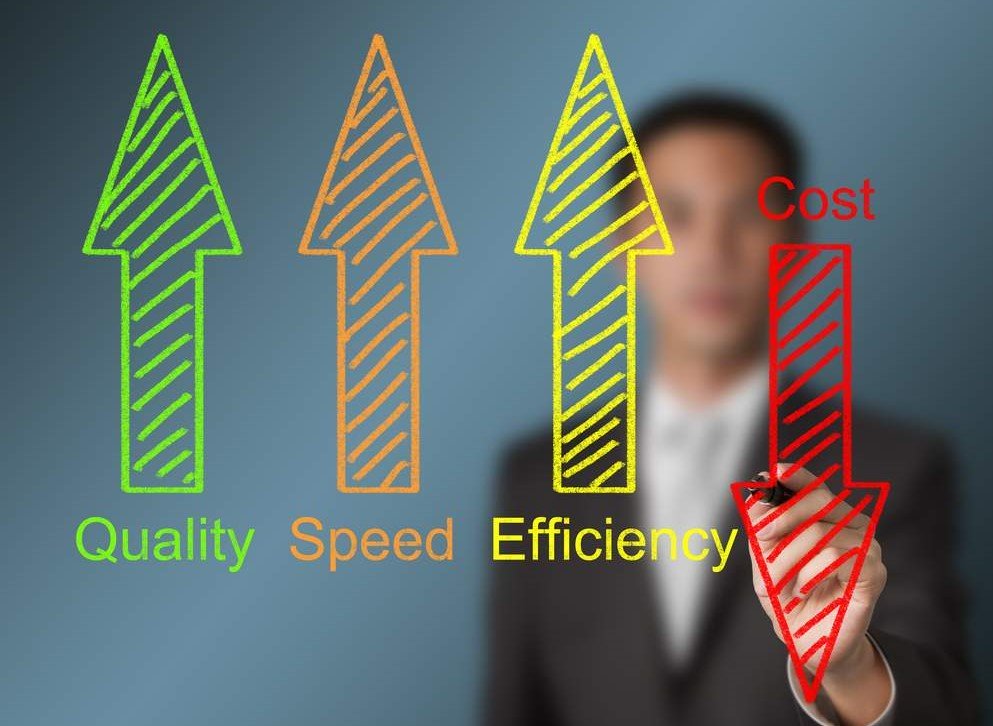We are living in turbulent times. We have seen the China-US trade war impact and rearrange supply chain lines. We have seen two quarters of negative financial growth in Hong Kong amidst a deeply tense political landscape. The majority of general counsel believe a global recession is coming in the next two years. Legal functions in APAC are planning on slashing budgets an average of 9% in the upcoming months. To say nothing of Brexit or the US political situation. The net effect of all this on in-house legal departments is the same message we have been hearing for months, but now delivered with much more urgency and stridency: do more with less.
If you are a general counsel and you are faced with managing a budget, there are terribly few levers that you have at your disposal to meet these constraints. If you are struggling with the question of how you are going to manage the next couple of fiscal years, you are not alone. But this is a good time to challenge the old ways of thinking, and the old ways of doing things.
Companies that are faced with headwinds will always seek to find opportunities among the challenges. In 2019 and 2020, those opportunities remain firmly in Asia. At the same time, headwinds pose unique challenges and unusual legal work to support a rapidly developing strategy and rapid response cycles. Typically, this causes a legal department to react in the following way:
- For all special projects, strategic initiatives and rapid response support, the legal team will identify a trusted outside counsel and pay them hourly rates to support all that strategic and high value work.
- The internal legal team will start working longer hours, weekends, etc. because they will need to continue to effectively deliver all the business as usual work and then they will also need to attend briefings and meetings to stay in the loop on all the work that their outside counsel are performing.
Rather than truly saving time for the beleaguered outside counsel, the reliance on outside counsel has just created an additional management workstream for the in-house legal department. This response is not unusual, and it is not meritless. Afterall, outside counsel provide valuable longitudinal perspective on the strategic initiative as well as additional resources to help keep projects moving forward. Nevertheless, the outcome of this approach is more for less – more work for the in-house counsel, more money spent on outside counsel, and less time to focus on improving the way the legal department delivers its core value propositions. Probably not the more for less equation most general counsels were seeking to achieve.
Consider an alternative approach. Your in-house lawyers are definitionally the only embedded lawyers within a company. They are closer to the strategy, concerns, thinking, personalities, and practical constraints that the company is operating under than any other legal resource in the entire legal value supply chain. That would suggest that in-house legal counsel should be leading the charge on the company’s strategic response, and outside counsel should be playing a supporting role covering specific needs (targeted legal research, longitudinal/cross-industry knowledge, regulatory representation). This does not happen for one simple reason: in-house legal teams drive the core of “business as usual work” and it is absolutely critical that there is no loss in the speed or effectiveness in core revenue-generating work in a contracting and volatile economic environment. They simply do not have the capacity to work outside the BAU legal work. And this is where process and technology solutions can change everything.
Historically, our experience at KorumLegal typically demonstrates that when a company chooses to take a look at and redesign of its legal processes, it can deliver efficiency gains of between 15% and 50%. This is without purchasing or implementing any new technology tools. The present state of legal technology has matured to the point where investments in legal technology typically double a lawyer’s productivity levels while simultaneously providing unprecedented levels of visibility, reporting and risk management. Legal technology allows the knowledge of the legal department to embed itself into the business so that risks are being managed, even if a lawyers’ eyeballs never touch the particular document. By shifting BAU work to automation tools with re-engineered process solutions the legal team can focus on delivering their highest-value service without sacrificing any support to the core business operations needed to navigate the turbulence.
| Related content: Want to know how process design can deliver value and drive business strategy? Click here to find out! |
So why doesn’t everyone follow this path? Two misunderstandings lead to avoidance of this solution:
- First, the belief that this solution is too expensive. This is wrong for two reasons. Process optimisation work, including change management implementation, costs less than 30 billable hours that sophisticated outside counsel would charge. If you can improve your efficiency of your business as usual work by 15%, you can deliver a transformation to your legal department that will last for years, and will pay for itself within 5 weeks. Similarly, technology costs have come down drastically. The exact costs of these tools vary extensively based on the scope of the tool and the numbers of impacted users. Nevertheless, our experience is that all of these tools deliver positive return-on-investment to legal departments, and typically do so within 6 months or less post-launch.
- The second common misconception is that these initiatives take a long time. Based on our experience, the delivery of process optimization can be done in as little as four months. We’ve also seen a full technology implementation, integration and adoption (depending on scope) done in as little as six months.
The last recession saw the birth of “NewLaw” with non-traditional companies offering innovative, flexible and cost effective solutions to legal departments that were struggling to juggle an unprecedented amount of novel strategic work alongside the day-to-day demands of their continuing business operations. The next set of challenges will further drive in-house departments to explore the ways in which they work, the tools they use to deliver their counsel, and purposefully allocate their limited human talent to their highest potential and highest value uses. Making sure that your department’s three core elements (people, process and technology) are all functioning optimally is likely to be the next revolution we see in legal departments.

About Bill Novomisle
Bill is a senior litigator turned legal operations specialist with over 8 years’ experience in legal innovation roles. Bill has worked for both in-house departments and law firms across Hong Kong, China (Shanghai), India, Canada, and the USA designing and implementing various process and technology based initiatives. His clients span a wide variety of industries including TMT, heavy equipment manufacturing, consumer goods and financial services. Bill has a keen interest in the transformation of the legal profession and elevating the role that lawyers’ play in the strategy and operations of their corporate clients.
































 Titus Rahiri
Titus Rahiri







